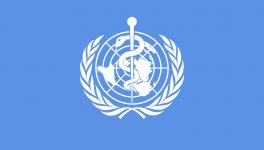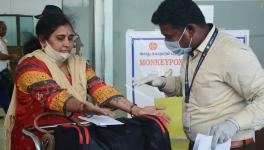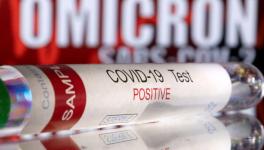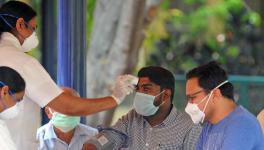“Monkeypox Not a Threat to India Currently; Can Quickly Become One”- Shahid Jameel
New Delhi: With five cases of monkeypox in India- alarms, alerts and health advisories are being updated regularly. We still don’t know how serious the disease would be in India. Surveillance, awareness and public health precautions are the keys to having a check on it.
Shahid Jameel, eminent virologist and Fellow OCIS and Green Templeton College, University of Oxford, UK, when quizzed about the threat India faces from the disease, told NewsClick, “on the face of it, with only five known cases in India at this time, the threat is small. But these cases (and those globally) are not based on community surveillance but were found in those who sought medical help. The actual numbers may be much higher everywhere in the world for us to be able to see over 17,000 known cases globally.”
“For India, I would say it’s not a cause for worry at this time but can quickly become one. We need to be vigilant and put various public health measures in place,” Prof. Jameel added.
While the World Health Organization (WHO) has already declared it a global health emergency, India, even in the very preliminary stage, cannot afford to be complacent about it. Again, the lessons learnt during the COVID 19 pandemic can be used in the fight against monkeypox. To this, Prof. Jameel commented, “we should not make a mistake. Though monkeypox transmits mainly through touching and among close contacts, it also spreads through body fluids and droplets (i.e., surface contamination). Such infections can spread very quickly in places with high population density. Indian cities are crowded and come in that category.”
On the important aspect of key learnings from COVID19 and how to apply them against monkeypox, Prof. Jameel said, “the key lessons from Covid-19 are to recognise the problem early, not be complacent, put in public health measures (testing, isolation and treatment) early, communicate clearly, use the best tools available and use data to set policy. All these apply to Monkeypox as well.”
Prof. Jameel believes that India’s preparedness to tackle the threat perception should be in order at this stage. However, he highlighted certain points, saying, “so far, I would say yes because the reported numbers are low. But since this has the potential to spread quickly, we should have a clear and coordinated plan. The Ministry of Health and Family Welfare, Govt of India issued guidelines for monkeypox management in the country on 31st May 2022- even before any case was detected. This is a very good step, but too much focus on ports of entry can make us complacent when it comes to community transmission. We have seen that during Covid-19.”
While vaccination against the monkeypox virus and its different possibilities are in discussion across the world, can the technological advances, achieved during COVID vaccines, help India? Highlighting some crucial aspects regarding this, he said, “India’s strength is not in vaccine development but in manufacturing. We can leverage that strength to license and produce large amounts of the available third-generation smallpox vaccine (which is approved for use against monkeypox as well). Researching new vaccines and bringing them to the market will take time. It will also be hard for the world to come up again with the kind of capital it did for Covid-19 vaccines, especially since most economies have been adversely affected by the ongoing pandemic.”
When asked for his suggestions that the Government and policymakers could use to tackle monkeypox, Prof. Jameel said, “going beyond the guidelines issued well ahead of time, the key elements of preparedness would be testing, tracing, isolation and treatment.” In addition, he pointed out increasing testing facilities beyond the National Institute of Virology (NIV), Pune. “During Covid-19, multiple laboratories across the country developed PCR testing capability. Previously, ICMR has set up Virology units in over 50 medical colleges. Training in laboratory containment and testing can increase their capabilities and quickly expand testing. NIV can play a trainer and quality control role,” Jameel commented.
He also suggested that testing sewage water for monkeypox (like successfully done for Covid-19) can be implemented for cities that have the highest risk due to high population density. Cities also have a working sewage system (unlike villages). A virus in sewage is a good indicator of community transmission which can guide public health planners and help fine-tune the outbreak response.
Prof. Jameel suggested using India’s vaccine manufacturing strength to license and manufacture the Bavarian Nordic vaccine for India and other Low and Middle-Income Countries (LMICs) along with using India’s generic pharma industry, to license and manufacture Tecovirimat (an FDA-approved drug) for India and other LMICs.
“The most important preparation for the future is a robust and well-funded infectious disease research programme in the country. Viruses appear to be emerging at increased frequency. We can only keep ahead of them through research,” Prof. Jameel said concluded.
Get the latest reports & analysis with people's perspective on Protests, movements & deep analytical videos, discussions of the current affairs in your Telegram app. Subscribe to NewsClick's Telegram channel & get Real-Time updates on stories, as they get published on our website.
























